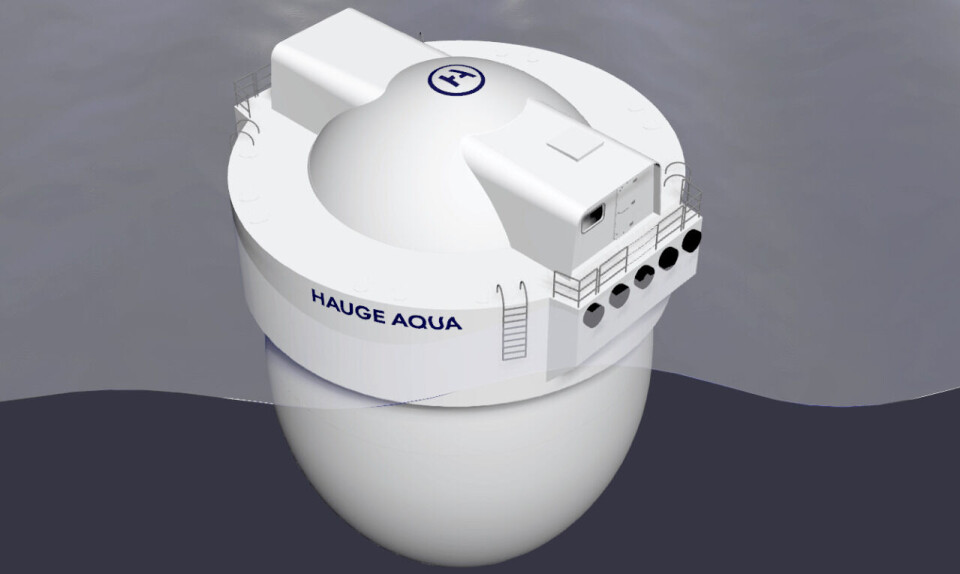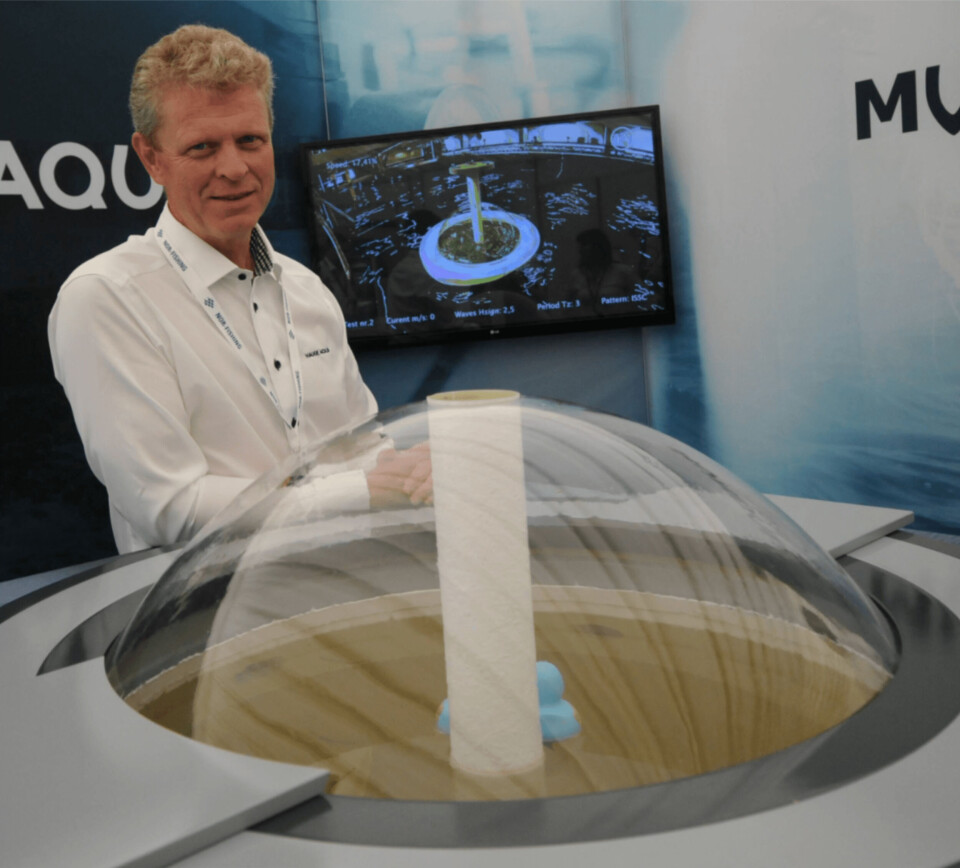
Mini-Egg under way after Hauge Aqua split with Mowi
The first version of the long-proposed Egg floating semi-closed salmon farm that was once a flagship project for Mowi is to be built independently by its designer in Norway.
Hauge Aqua has contracted lifeboat builder Herde Kompositt to construct the Egg using sandwich composite, a material that has been used for many years of use in boat and aircraft hulls and can withstand high loads over time.
The version being built is called the E2000, also known as the Postsmolt Egg.

Up to a kilo
Hauge Aqua founder Cato Lyngøy said the E2000 is relevant for post-smolt production for food fish producers, as well as a post-smolt unit in connection with hatcheries.
The mini-Egg will have 1,850m³ of water as farming volume. It will be 21 metres high and 15 in diameter, and has a much smaller than the grow-out version will have, if built.
“It is a conscious choice for Hauge Aqua to first build the post-smolt egg, with the full-scale unit as the natural next step. E2000 is a commercial product where the fish grows from smolt to one kilo, or it can be used for broodstock in the last part of the sea phase,” said Lyngøy.
“The Egg solves the main challenges in the industry. Sludge is collected and used usefully in other industries, the risk of escape is significantly reduced, and water is collected from safe depths where the lice do not normally live.”
Delivered in a year
The egg will be floated at a locality in Romsdalsfjorden and will be delivered this time next year.
This Egg is a mini version of the main project that Hauge Aqua started with in 2015, when, in collaboration with Mowi (then called Marine Harvest) it applied for 14 development permits for 10 eggs. The Norwegian Fisheries Directorate granted only four permits, equivalent to 3,120 tonnes of allowed biomass.
At the end of February, Lyngøy informed the online newspaper E24 that Hauge Aqua had ended collaboration with Mowi.
“It has been three years since Mowi received six development permits for the project, and still no Egg has been released into the sea. Then it is difficult to stay in such an exclusive agreement,” Cato Lyngøy told E24.
Too expensive for Mowi
He now wants to further develop the technology, but without Mowi. He told Bergens Tidende and E24 that the project has not progressed since the turn of the year 2019, and that the project ran aground because it became too expensive for Mowi.
“We have really tried to find a solution with Mowi and have worked hard to reduce project costs. Now we cannot wait any longer. The project is already severely delayed”, he told the media outlets. The company will now apply for research and development permits as an alternative way of realising the project.
The E2000 is only a tenth of the volume of the grow-out model but paves the way for the main project’s 44m-high Egg.
Egg farm refused
Last week, Hauge Aqua’s application for a dispensation to establish farming in Eggs south of Veøya was rejected.
Municipal politicians in Molde agreed that the Egg was a positive development of new technology for farming, but the majority still believed that the disadvantages outweighed the advantages.






















































